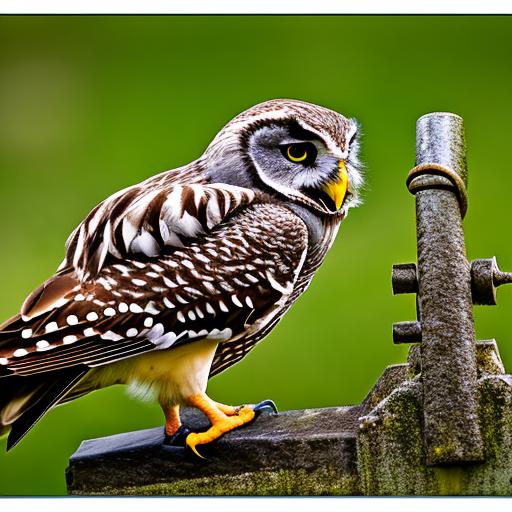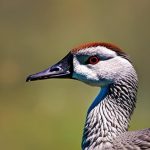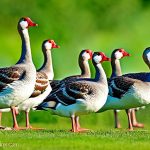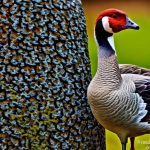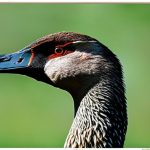The relationship between owls and geese is an intriguing one that has important implications for natural pest control. Owls are known for their hunting prowess, and geese are often vulnerable to predation. Understanding this relationship is crucial for managing geese populations and maintaining a balanced ecosystem. By harnessing the power of owls, we can effectively control pests in a natural and sustainable way.
Key Takeaways
- Owls and geese have a predator-prey relationship in the wild.
- Geese need protection from predators because they are a valuable food source for many animals.
- Owls hunt geese by swooping down from above and using their sharp talons to grab them.
- Owls play an important role in natural pest control by keeping populations of rodents and other small animals in check.
- Using owls to deter geese can be an effective and humane alternative to traditional pest control methods.
Why do geese need protection from predators?
Geese are highly vulnerable to predation due to their size and behavior. They are large birds that are slow on land and in the water, making them easy targets for predators. Geese also tend to gather in large flocks, which can attract the attention of predators looking for an easy meal. Predation can have a significant impact on geese populations, leading to declines in numbers and disruptions in their natural behavior patterns.
How do owls hunt and prey on geese?
Owls are nocturnal hunters that have adapted specialized hunting techniques to catch their prey. They have excellent hearing and can locate their prey by sound alone. Owls also have sharp talons and beaks that they use to capture and kill their prey. When it comes to hunting geese, owls will typically target young or injured individuals that are more vulnerable. They will swoop down silently from above and use their powerful talons to grab the goose, often killing it instantly.
The role of owls in natural pest control
Natural pest control is essential for maintaining a healthy ecosystem. It involves using natural predators to keep pest populations in check, reducing the need for harmful chemicals or other interventions. Owls play a crucial role in natural pest control by preying on pests such as rodents, insects, and small mammals. By keeping these populations in balance, owls help prevent outbreaks of pests that can damage crops or spread disease.
The effectiveness of using owls to deter geese
Several studies have shown the effectiveness of using owls to deter geese. One study conducted in a golf course found that placing owl decoys in strategic locations significantly reduced the presence of geese. The geese perceived the decoys as a threat and avoided the area, leading to a decrease in damage to the golf course. Another study conducted in an agricultural setting found that using recorded owl calls effectively deterred geese from feeding on crops. The geese recognized the calls as a sign of danger and quickly moved away from the area.
The benefits of using owls instead of traditional pest control methods
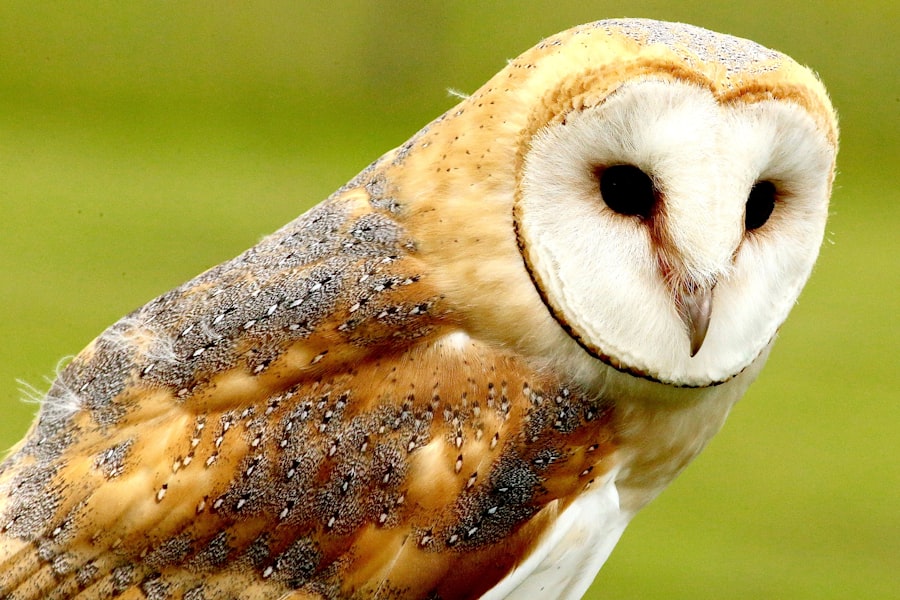
Using owls for pest control offers several benefits compared to traditional methods. Firstly, it is a natural and sustainable approach that does not rely on harmful chemicals or interventions. This reduces the risk of environmental contamination and harm to non-target species. Secondly, owls are highly effective predators that can keep pest populations in check without the need for constant human intervention. This saves time, effort, and resources in managing pests. Lastly, using owls for pest control can help maintain a balanced ecosystem by promoting natural predator-prey relationships.
How to attract owls to your property to keep geese away
Attracting owls to your property can be an effective way to keep geese away. Here are some tips for attracting owls:
1. Provide suitable habitat: Owls need trees or other structures for nesting and roosting. Planting native trees or installing owl boxes can provide suitable habitat for them.
2. Create a welcoming environment: Owls prefer quiet and undisturbed areas. Minimize noise and disturbance on your property to make it more attractive to owls.
3. Install perches: Owls need perches for hunting and surveying their surroundings. Install perches such as tall poles or dead trees to provide them with suitable hunting grounds.
4. Limit artificial lighting: Owls are nocturnal hunters and are sensitive to artificial lighting. Minimize outdoor lighting or use motion-activated lights to reduce light pollution.
The importance of maintaining a balanced ecosystem
Maintaining a balanced ecosystem is crucial for the health and sustainability of our environment. Each species plays a unique role in the ecosystem, and disruptions to these relationships can have far-reaching consequences. By using owls for pest control, we can help maintain a balanced ecosystem by promoting natural predator-prey relationships. This reduces the need for harmful chemicals or interventions that can disrupt the delicate balance of nature.
The ethical considerations of using owls for pest control
Using owls for pest control raises ethical considerations that need to be addressed. It is important to ensure that the welfare of both the owls and the geese is taken into account. Measures should be put in place to minimize any potential harm or stress to the owls, such as providing suitable habitat and minimizing disturbance. Additionally, it is crucial to consider the long-term effects of using owls for pest control and monitor their impact on the ecosystem.
Conclusion and future research directions
In conclusion, understanding the relationship between owls and geese is essential for effective pest control and maintaining a balanced ecosystem. Owls play a crucial role in natural pest control by preying on pests and keeping their populations in check. Using owls to deter geese has been shown to be an effective and sustainable method that offers several benefits compared to traditional pest control methods.
Future research should focus on further understanding the dynamics of the relationship between owls and geese, as well as exploring other potential applications of using owls for pest control. By continuing to study and harness the power of owls, we can develop more effective and sustainable methods for managing pests and maintaining a healthy environment.
If you’re interested in learning more about how to keep geese away from your property, you might also find this article on Poultry Wizard helpful. It discusses the role of owls in deterring geese and provides insights on effective strategies for owl-based geese control. Check it out here to discover how owls can be a natural solution to your geese problem.
Meet Walter, the feathered-friend fanatic of Florida! Nestled in the sunshine state, Walter struts through life with his feathered companions, clucking his way to happiness. With a coop that’s fancier than a five-star hotel, he’s the Don Juan of the chicken world. When he’s not teaching his hens to do the cha-cha, you’ll find him in a heated debate with his prized rooster, Sir Clucks-a-Lot. Walter’s poultry passion is no yolk; he’s the sunny-side-up guy you never knew you needed in your flock of friends!

